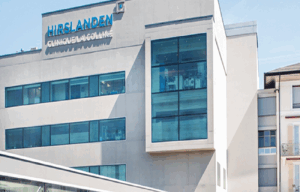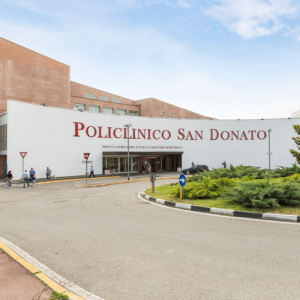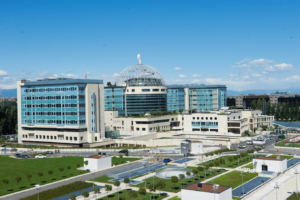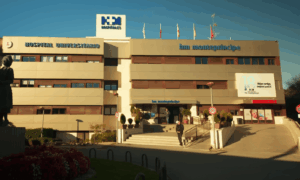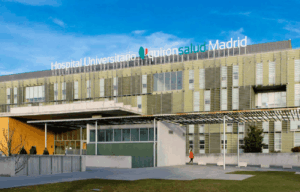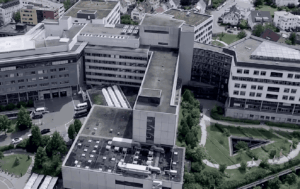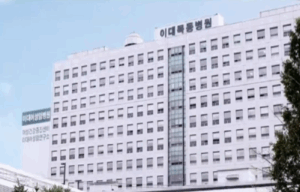Pancreatic cancer
Disease description
Pancreatic cancer is an oncological disease that affects the pancreas (an organ responsible for both digestive and endocrine functions). The tumor can develop in any part of the pancreas, but according to statistics, 60% of neoplasms are concentrated in the head of the organ.
Men are more likely to develop pancreatic cancer than women. The average age of diagnosis is between 65 and 67 years. Among digestive system cancers, pancreatic cancer ranks fourth in terms of prevalence.
Forms of pancreatic cancer
- Adenocarcinoma: the tumor develops in the cells responsible for producing digestive enzymes. This type accounts for 90% of all cases.
- Neuroendocrine tumor (islet cell carcinoma): forms in the cells responsible for hormone production (particularly insulin). This form is much rarer than adenocarcinoma.
Symptoms indicating the need for diagnosis and treatment
The disease often remains asymptomatic for a long time. In most cases, the diagnosis is made when the tumor has grown large enough to compress neighboring organs.
With neuroendocrine cancer, the patient may experience:
- Weight loss
- Nausea, vomiting
- Muscle weakness
- Skin rash
- Sudden onset of diabetes
With adenocarcinoma, the patient may present with the following symptoms:
- Abdominal or back pain (the location of the pain depends on the tumor’s position: if in the tail — pain on the left, if in the head — pain in the stomach area, center, or slightly radiating to the right side)
- Poor appetite
- Bloating
- Irregular stool (alternating diarrhea and constipation)
Diagnosis and treatment methods
Diagnosis
In addition to examination and lab tests, oncologist-gastroenterologists in top clinics in Europe and worldwide prescribe the following diagnostic procedures:
- Ultrasound (US): early stages of cancer are difficult to detect with this method
- Biopsy: sampling of pancreatic tissue
- CT, MRI, PET-CT
- Endoscopic retrograde cholangiopancreatography: stent placement in the bile duct in cases of jaundice
Treatment
There are three main types of therapy:
Chemotherapy: administered before surgery, during surgery (hyperthermic intraperitoneal chemotherapy), after surgery, or instead of surgery when the tumor cannot be surgically removed
Surgery: the only way to completely remove the tumor. Suitable for 15-20% of patients with pancreatic cancer
Radiation therapy: the most advanced option today is IMRT (intensity-modulated radiation therapy)
Innovations in global clinics
To treat inoperable pancreatic cancer, European medical centers use HIFU (high-intensity focused ultrasound). Ultrasound waves instantly heat and destroy abnormal cells. This therapy is called “scalpel-free oncological surgery” and is suitable for tumors of any size and shape.
Top clinics
-
 Seoul, South Korea Asan Medical Center
Seoul, South Korea Asan Medical Center -
 Jerusalem, Israel Hadassah Medical Center
Jerusalem, Israel Hadassah Medical Center -
 Petah Tikva, Israel Medical Center “Rabin”
Petah Tikva, Israel Medical Center “Rabin” -
 Istanbul, Turkey Medipol Mega University Hospital
Istanbul, Turkey Medipol Mega University Hospital -
 Geneva, Switzerland Hirslanden Clinique La Colline
Geneva, Switzerland Hirslanden Clinique La Colline -
 Geneva, Switzerland Generale-Beaulieu
Geneva, Switzerland Generale-Beaulieu -
 Baden-Baden, Germany Max Grundig Clinic
Baden-Baden, Germany Max Grundig Clinic -
 Istanbul, Turkey Acibadem Altunizade
Istanbul, Turkey Acibadem Altunizade -
 Istanbul, Turkey Medistate International Hospital
Istanbul, Turkey Medistate International Hospital -
 Istanbul, Turkey Acıbadem Ataşehir Clinic
Istanbul, Turkey Acıbadem Ataşehir Clinic -
 Antalya, Turkey Hospital Medical Park Antalya
Antalya, Turkey Hospital Medical Park Antalya -
 Dubai, UAE NMC Healthcare
Dubai, UAE NMC Healthcare -
 Istanbul, Turkey Hospital “Memorial Şişli”
Istanbul, Turkey Hospital “Memorial Şişli” -
 Milan, Italy San Donato Hospital in Milan, Italy
Milan, Italy San Donato Hospital in Milan, Italy -
 Milan, Italy San Raffaele University Hospital
Milan, Italy San Raffaele University Hospital -
 Abu Dhabi, UAE Burjeel Hospital Abu Dhabi
Abu Dhabi, UAE Burjeel Hospital Abu Dhabi -
 Vienna, Austria Debling Private Clinic
Vienna, Austria Debling Private Clinic -
 Vienna, Austria Confraternität Private Hospital
Vienna, Austria Confraternität Private Hospital -
 Heidelberg, Germany Heidelberg University Hospital
Heidelberg, Germany Heidelberg University Hospital -
 Hamburg, Germany Asklepios Nord Heidberg
Hamburg, Germany Asklepios Nord Heidberg -
 Dusseldorf, Germany FKKD Clinical Complex
Dusseldorf, Germany FKKD Clinical Complex -
 Winterthur, Switzerland Clinic "Lindberg"
Winterthur, Switzerland Clinic "Lindberg" -
 Incheon, South Korea Gil Medical Center at Gachon University
Incheon, South Korea Gil Medical Center at Gachon University -
 Lausanne, Switzerland Clinique Montchoisy
Lausanne, Switzerland Clinique Montchoisy -
 Nyon, Switzerland Clinique Genolier
Nyon, Switzerland Clinique Genolier -
 Istanbul, Turkey “Memorial Ataşehir” Clinic
Istanbul, Turkey “Memorial Ataşehir” Clinic -
 Bodrum, Turkey Acibadem Bodrum Hospital
Bodrum, Turkey Acibadem Bodrum Hospital -
 Barcelona, Spain QuironSalud Barcelona Hospital
Barcelona, Spain QuironSalud Barcelona Hospital -
 Barcelona, Spain Medical Center "Teknon"
Barcelona, Spain Medical Center "Teknon" -
 Barcelona, Spain University Hospital Barnaclinic+
Barcelona, Spain University Hospital Barnaclinic+ -
 Madrid, Spain University Hospital HM Monteprincipe
Madrid, Spain University Hospital HM Monteprincipe -
 Hamburg, Germany Asklepios Klinik Barmbek
Hamburg, Germany Asklepios Klinik Barmbek -
 Gebze, Turkey Anadolu Clinic
Gebze, Turkey Anadolu Clinic -
 Zurich, Switzerland Hirslanden Clinic
Zurich, Switzerland Hirslanden Clinic -
 Madrid, Spain Quiron Salud University Hospital
Madrid, Spain Quiron Salud University Hospital -
 Lugano, Switzerland Saint Anna Clinic
Lugano, Switzerland Saint Anna Clinic -
 Geneva, Switzerland Clinique des Grangettes
Geneva, Switzerland Clinique des Grangettes -
 Duesseldorf, Germany Oncological Center Dusseldorf
Duesseldorf, Germany Oncological Center Dusseldorf -
 Seoul, South Korea Samsung Medical Center
Seoul, South Korea Samsung Medical Center -
 Seoul, South Korea Medical Center at Ewha Womans University
Seoul, South Korea Medical Center at Ewha Womans University -
 SNUH
SNUH




